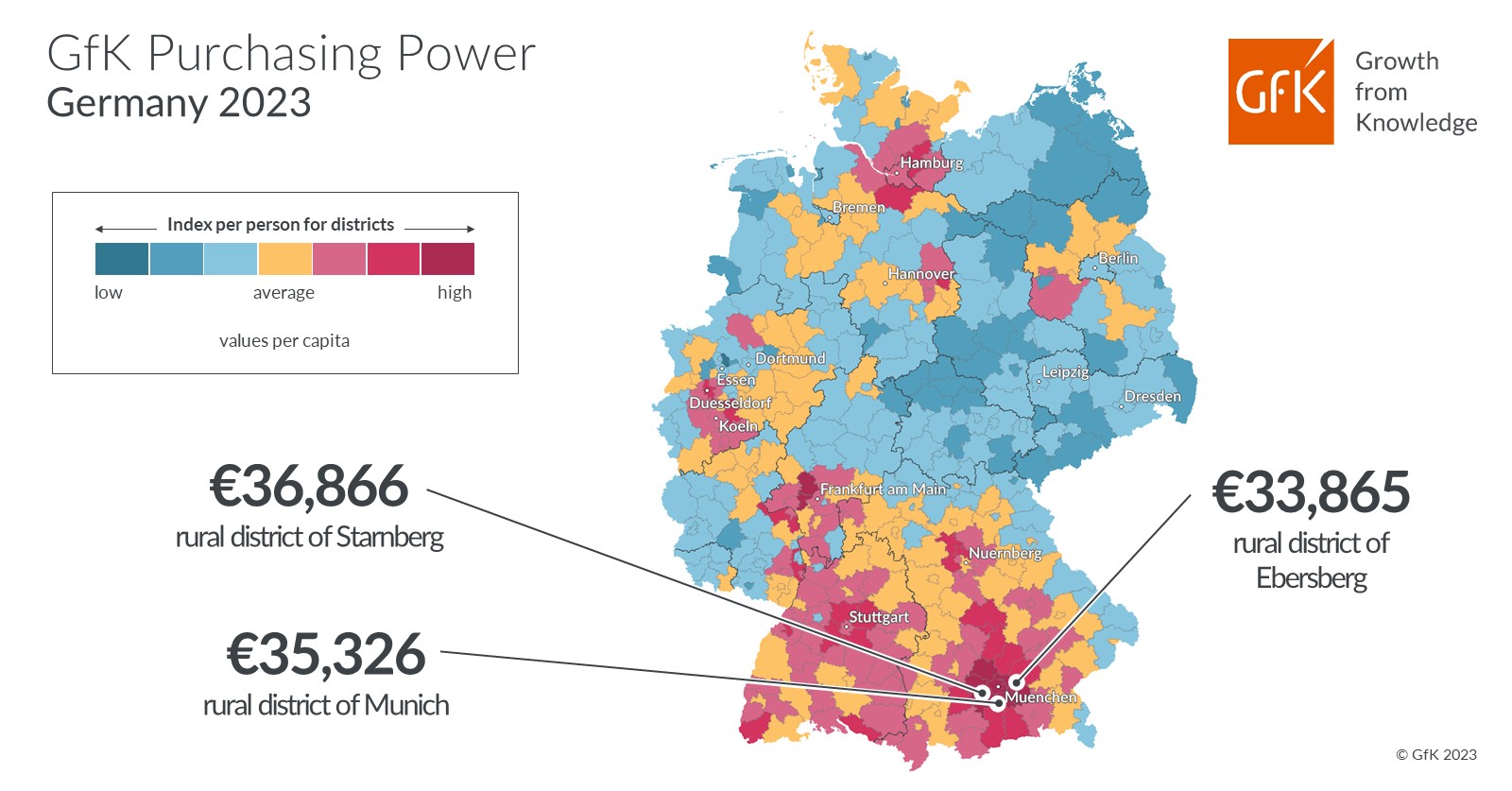Monthly living expenses in Germany for international students
Cost of living in cities in Germany varies depending on the state, resulting in differences in monthly living expenses. For example, if you choose to live in major cities like Hamburg, Düsseldorf, Cologne, Frankfurt, or Munich, the housing costs will be higher compared to medium-sized and small cities. Housing in western German states is also generally more expensive than in eastern German cities. However, in major cities, your salary prospects after completing vocational training or graduating from university are typically higher. Additionally, there are often more job opportunities for part-time work in large cities.
Regardless of the state you study in, you will have certain obligatory expenses, such as:
- Cost of living in Germany (rent, food, clothing, books, phone, etc.)
- Tuition fees
- Transportation expenses (vocational students may be eligible for discounted semester tickets)
- Health insurance
- Monthly cost of living in Germany
The most significant expense is generally the rent, ranging from 250 to 400 EUR per month. In expensive major cities, the rent can be even higher. Students can choose to live in student dormitories or in shared apartments where multiple individuals rent a large apartment and share the costs (WG-Wohngemeinschaft).
If you are new to Germany, you can apply for student dormitories provided by the university (Studienwohnheim). Typically, university dormitories offer subsidized rates, and on average, you would pay around 260 euros per month, including electricity, water, internet, and weekly cleaning services.
Additional expenses apart from rent:
Laundry expenses: Depending on the dormitory, you will receive a laundry card and need to top it up with money to use the laundry machines. The average cost for each laundry cycle is around 1.5 euros.
Food expenses: Typically, food expenses range from 100 to 150 euros per month. If you can eat German food, you can have lunch at the university cafeteria (Mensa). Vietnamese students studying in Germany often prepare breakfast at home, have lunch at the Mensa, and have dinner at the library. Due to the heavy study schedule, there is usually limited time for cooking, so eating at the university is a cost-effective and practical option.
Household necessities such as toiletries, clothing, and books. Students usually enjoy discounts on these items. By presenting your student card at ticket counters, you can get reduced prices for theater tickets, museum admissions, parks, swimming pools, or other cultural attractions. If you are not a shopping addict, the average monthly expenditure on household necessities is around 50 euros.
Tuition fees
In Germany, vocational training programs, undergraduate studies, and master’s degrees are all tuition-free.
For vocational students studying in Germany, not only are there no tuition fees, but they also receive a monthly stipend of around 1000 euros.
Here are the prices of some commonly used items in Germany:
- Tomatoes: 5.12 euros/kg
- Peaches: 1.99 euros/kg
- Milk: 0.9 euros/liter
- Cucumbers: 0.49 euros/piece
- Bananas: 1.89 euros/kg
- Grapes: 4.98 euros/kg
- Apples: 2.5 euros/kg
- Eggs: 1.99 euros/10-egg tray
- Pork shoulder: 9.90 euros/kg
- Pork loin: 9.90 euros/kg
- 1 cup of coffee at a cafe: 2.5 euros
- 1 glass of beer (Becker) at a bar: 3 euros
RELATED ARTICLES
THINGS TO NOTE WHEN WORKING MORE IN GERMANY
If studying abroad in Germany and intending to work part-time, international students need to clearly understand the regulations and requirements of this country. Below are important things you need to keep in mind when working part-time in Germany. 1. Working regulations – International students have two options for working hours: work 120 days a year […]
GERMAN WORK CULTURE
Germany is one of the countries with the largest economies in Europe and the world, notable for its professional and efficient working style. German working culture not only helps this country achieve impressive economic achievements but also creates an ideal working environment. Let’s explore with HHD Academy the outstanding and unique features of their working […]
7 THINGS INTERNATIONAL STUDENTS NEED TO DO AS SOON AS ARRIVING IN GERMANY
To have a smooth and convenient study abroad journey, here are 7 things international students need to do as soon as they arrive in Germany: 1. Find accommodation You should consider and choose carefully because accommodation greatly affects your studies and travel. You should look for accommodation before coming to Germany through groups, websites and […]
TYPES OF SETTLEMENT IN GERMANY FOR FOREIGNERS
Many international students choose Germany as a place to study and work with the desire to have the opportunity to settle here permanently. With a clear and flexible legal system, Germany offers various forms of settlement for foreigners. Let’s find out with HHD Academy what those forms are. 1. Residence card This type of temporary […]
Cost of Living in Germany – Updated for 2024
The cost of living in Germany is quite reasonable compared to other European countries. As a single person, you will need a minimum of €934 per month (around $1,018 US dollars) or €11,208 per year (around $12,217 US dollars) to cover your living expenses in Germany as of 2024. A family of four, on the […]










